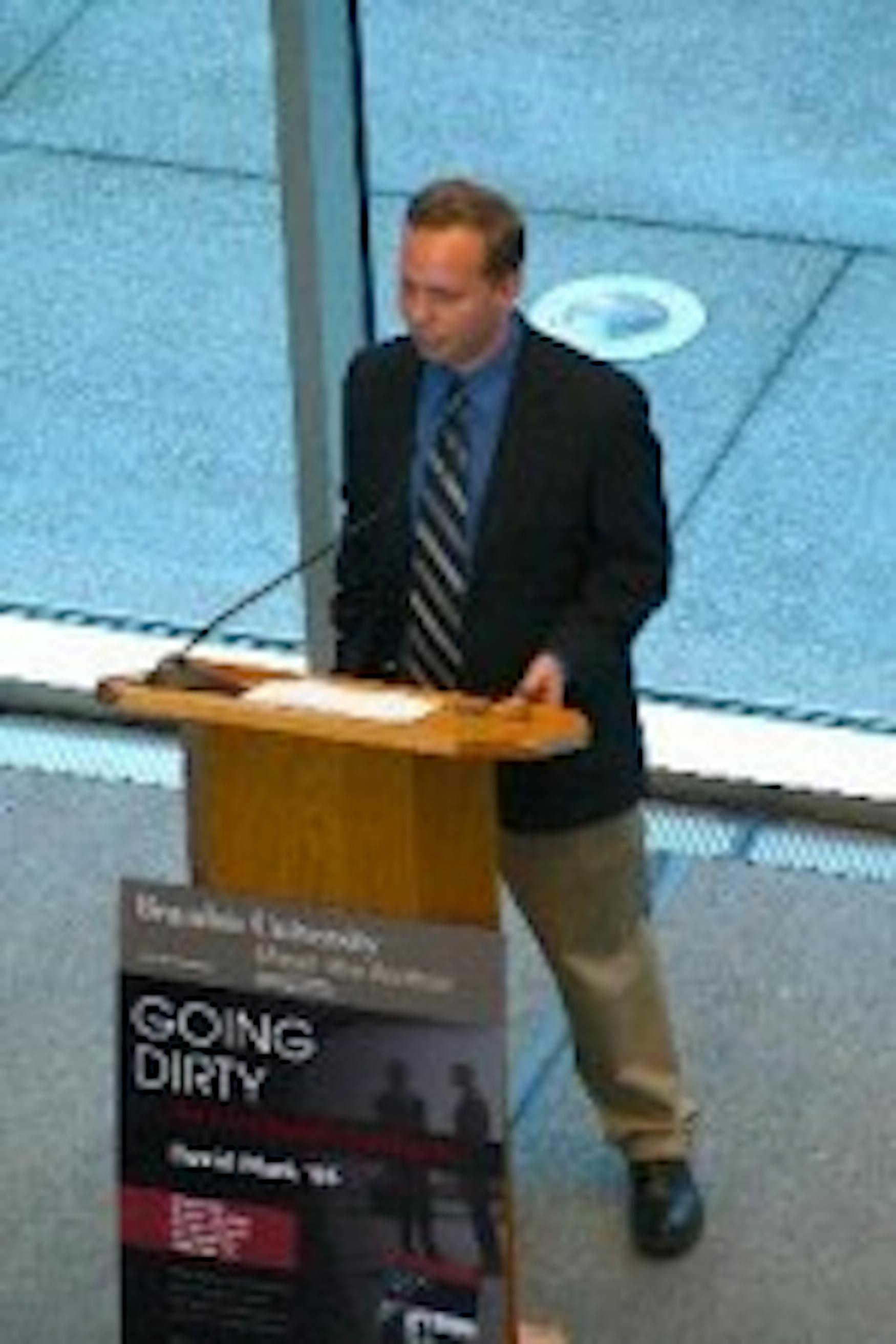Effectiveness of negative campaigning questioned
Negative campaign advertisements may not always be as effective as campaign strategists and the public think, but veteran political analyst David Mark '95 believes this popular campaign strategy is nevertheless going to become even more frequent in the future.Mark,the author of Going Dirty: The Art of Negative Campaigning, returned to his alma mater Wednesday as part of the "Meet the Author" series to discuss his book in the Shapiro Campus Center Atrium.
His visit came 13 days before the midterm election and amid an intense television-ad war between Massachusetts gubernatorial candidates Deval Patrick (D) and Lt. Governor Kerry Healey (R).
Mark, who was a guest on Comedy Central's The Daily Show two week ago, said negative campaign ads emphasize the "opponents' problems" rather than the candidates "own attributes." Candidates defend the use of such ads, Mark said, by calling them "comparative advertising" or saying they raise character issues.
Mark said he is doubtful of the effectiveness of negative campaign ads in this year's campaigns, especially those ads related to the Sept. 11, 2001 terrorist attacks.
"The more time passes, people don't have the same emotional, visceral reaction to [those images]," he said. The increasingly volatile situation in Iraq "dilutes the potency of the terrorism argument."
In Mark's view, neither of the two parties runs more negative campaigns than the other, but he agreed with an audience member who said the Republicans are sometimes more effective at getting their message across.
Mark attempted to prove his theory that negative campaigning is ineffective by pointing to the 2004 primary for the Democratic nomination.
In that race, frontrunners Howard Dean, then the governor of Vermont, and Richard Gephardt, a former House minority leader, "attacked each other harshly" before the Iowa Caucus, Mark said. Both lost to Massachusetts Senator John Kerry, who, Mark said, "ran a relentless, positive, upbeat campaign."
Mark said "the slew of negative ads [by both Dean and Gephardt] really backfired, particularly in the state of Iowa where "people are on a first-name basis with their elected officials."
But he said during the general election, the Swift Boat Veterans for Truth Ad campaign, which criticized Kerry's war service, damaged Kerry's chances because Kerry did not respond directly to its accusations.
Democrats should use caution, Mark said, in overairing ads about Republican Congressman Mark Foley's inappropriate instant messages with congressional pages.
Mark said instead of focusing on that issue specifically, they should simply tie Republican's mismanagement of Foley's actions with the "broader issues of the Iraq War and Hurricane Katrina" to show that "Republicans can't even keep their own house in order."
The future of political advertising lies in "microtargeting" or delivering a campaign's message to small segments of the population that are likely to vote, Mark said.
Microtargeting has recently been used increasingly with new technology like podcasts and Internet banner ads. Mark cited President George W. Bush's advisor Karl Rove as a strong and successful user of microtargeting.
According to Mark, negative campaigning is not going away soon. "I don't think you've seen the end of negative advertising-on television, radio and through direct mail," he said.
Mark is the former editor of the Campaigns and Elections magazine and is a frequent contributor to TV news programs.




Please note All comments are eligible for publication in The Justice.